HotSpots H2O: Humanitarian and Political Crisis Roils Venezuela
The Rundown
Some 3.4 million Venezuelans have fled their country amid an economic collapse and political crisis that is crippling healthcare service, nutrition, and sanitation in the region. Waterborne diseases are proliferating while hospitals in Venezuela do not have adequate medical supplies or facilities. Venezuela’s government has blocked the distribution of foreign humanitarian aid, a stance that led to protests along the borders with Brazil and Colombia on Saturday. At least four people were killed and hundreds injured.
Aid agencies call the exodus the largest displacement of people in Latin American history. The flight of millions is putting immense pressure on social services in neighboring countries, which have absorbed the majority of the people fleeing squalor and violence in Venezuela. Two-thirds of refugees in Boa Vista, Brazil who were surveyed said they now lived in places without water access.
“My daughter has diarrhea, she almost had a heart attack. We have nothing. We arrived here and we have nothing. I want this government out now, it has destroyed us.” — Lady Chacon, mother of a sick child in Barcelona, a city on Venezuela’s coast. Fourteen children died at Luis Razetti hospital in early February from amoebiasis, a form of dysentery.
By the Numbers
3.4 million: Refugees and migrants that have left Venezuela since 2015. Last year, more than 5,000 people a day fled the country. Eighty percent of the Venezuelans who have left are in Latin American and Caribbean countries. Colombia alone hosts 1.1 million refugees and migrants.
178 metric tons: Food aid that the U.S. State Department has positioned in Brazil, near the border with Venezuela. Nicolas Maduro, Venezuela’s president, already blocked the distribution of U.S. aid that is sitting in a Colombian border town.
$738 million: Funding request for 2019 for a regional plan to respond to the refugee influx. The plan, drafted by an international coalition of aid groups, prioritizes cash payments so that refugees can buy supplies they need.
On the Radar
U.S. Vice President Mike Pence, during an event in Colombia on February 25, is scheduled to call for Nicolas Maduro to step down as Venezuela’s president. The United States, along with 11 Latin American countries and more than a dozen European Union countries, recognized Juan Guaido as the country’s interim leader in the last month. Guaido disputes the results of last year’s election in which Maduro won a second term.
Resources and Further Reading
Venezuelan Outflow Continues Unabated International Organization for Migration
Venezuela: At Least Four Dead And Hundreds Injured In Border Standoff The Guardian
Regional Refugee and Migrant Response Plan UN Refugee Agency
Pence Going to Colombia to Demand Maduro Step Down The Hill
Where Climate Change Fits Into Venezuela’s Ongoing Crisis E&E News
Brett writes about agriculture, energy, infrastructure, and the politics and economics of water in the United States. He also writes the Federal Water Tap, Circle of Blue’s weekly digest of U.S. government water news. He is the winner of two Society of Environmental Journalists reporting awards, one of the top honors in American environmental journalism: first place for explanatory reporting for a series on septic system pollution in the United States(2016) and third place for beat reporting in a small market (2014). He received the Sierra Club’s Distinguished Service Award in 2018. Brett lives in Seattle, where he hikes the mountains and bakes pies. Contact Brett Walton

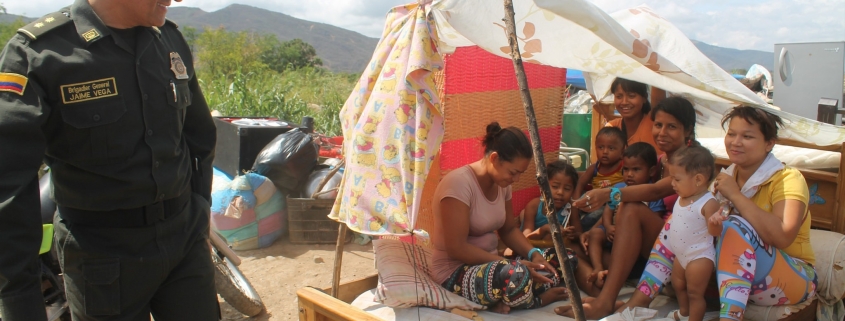

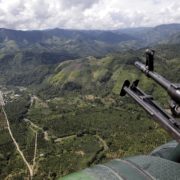
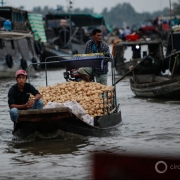

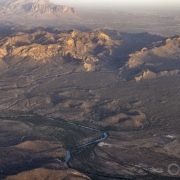 © J. Carl Ganter / Circle of Blue
© J. Carl Ganter / Circle of Blue 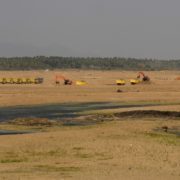
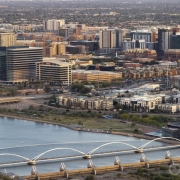




I can’t believe that Circle Of Blue hasn’t issued a correction regarding the blatant U.S. propoganda that this article represents. The sanctions pushed and enforced by the U.S. are, along with the drop in the price on oil, directly to blame for the conditions on the ground in Venezuela. Moreover, the “humanitarian aid” that the article references was never aid it was a political move to try and cause a scene at the border which the U.S. would then use to prop up its falsehood that the Maduro government is in need of toppling. Furthermore, as anyone who is familiar with U.S. policy in Latin America knows, the U.S. has a history of using ploys like this to incite violence in the furtherance of it aims to support/incite coups plus there have been instances where military hardware was hidden is similar so-called “aid”. Finally, if the U.S. Was really interested in supporting the Venezuelan people it would cancel all sanctions, rescind the illegal seizure of Venezuelan assets and not support the puppet Guido. Additionally, it would offer assistance in the form of free money or low interest money to help the government to offset the losses incurred by the drop in the price of oil. But, as has already been pointed out, the U.S. is only after Venezuela’s natural resources. The war criminals that are behind these anti-democratic actions should be exposed and not assisted via the publishing of such blatant propoganda.